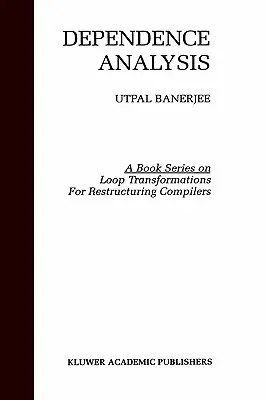Utpal Banerjee
(Author)Dependence Analysis (1997)Hardcover - 1997, 31 October 1996

Qty
1
Turbo
Ships in 2 - 3 days
In Stock
Free Delivery
Cash on Delivery
15 Days
Free Returns
Secure Checkout

Part of Series
Loop Transformation for Restructuring Compilers
Part of Series
Loop Transformations for Restructuring Compilers
Print Length
214 pages
Language
English
Publisher
Springer
Date Published
31 Oct 1996
ISBN-10
0792398092
ISBN-13
9780792398097
Description
Product Details
Author:
Book Edition:
1997
Book Format:
Hardcover
Country of Origin:
US
Date Published:
31 October 1996
Dimensions:
24.18 x
16 x
1.83 cm
ISBN-10:
0792398092
ISBN-13:
9780792398097
Language:
English
Location:
New York, NY
Pages:
214
Publisher:
Series:
Weight:
576.06 gm